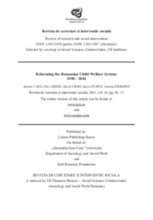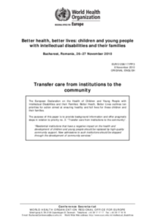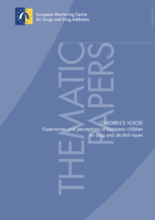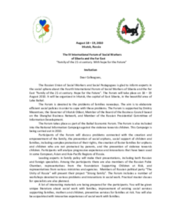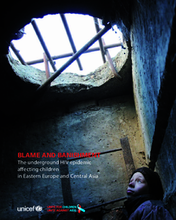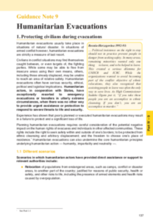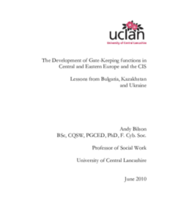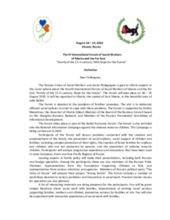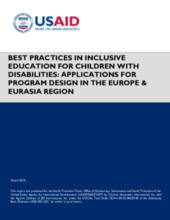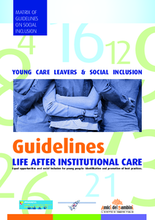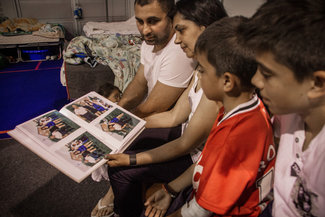

Displaying 961 - 970 of 1075
This article reviews the series of major changes undergone by the Romanian child welfare system from 1990 to 2010, including the laws and governmental reform measures enacted, the shift in child population among various Romanian institutions and foster care homes, types of institutions available to children, level of care, shift in reasons for child abandonment, changes in ways children are routed through the system, and how these changes have effect children’s development, health, and psychological well-being.
The purpose of this paper is to provide background information and offer pragmatic steps in relation to priority no. 3 of the European Declaration on the Health of Children and Young People with Intellectual Disabilities and their Families: “To transfer care from institutions to the community”. The paper was produced in preparation for the conference in Bucharest, Romania 26-27 November, 2010.
The purpose of this paper is to give meaning and insight into some of the key drug and alcohol issues that affect children from the perspectives of the children themselves. Research shows that large numbers of children who are separated from their parents are particularly vulnerable to developing drug and alcohol problems. Special attention is paid throughout the report on children looked after by relatives, foster carers, and institutions.
The Russian Union of Social Workers and Social Pedagogues is glad to inform experts in the social sphere about the Fourth International Forum of Social Workers of Siberia and the Far East “Family of the 21-st century. Hope for the Future”.
An eye-opening analysis of the social, economic, political and family problems contributing to an overwhelming HIV epidemic that disproportionately affects young people, adolescents and children.
This guidance note is part of the Handbook for the Protection of Internally Displaced Persons launched by the Global Protection Cluster in Geneva in June 2010. The target audience is staff of humanitarian, human rights and development agencies working in IDP operations in the field.
This report looks at children who enter institutional care because of being without parental care, children with disabilities, child victims of abuse and children in conflict with the law. The aim is to identify key routes through the systems in order to understand the nature of the difficulties that lead children to be placed in institutions and thereby to be able to identify alternative strategies that will better support families and children.
The Russian Union of Social Workers and Social Pedagogues is glad to inform experts in the social sphere about the Fourth International Forum of Social Workers of Siberia and the Far East “Family of the 21-st century. Hope for the Future”. The Forum will take place on 18 – 19 August 2010.
The purpose of this study is to provide an overview of best practices in inclusive education, inform stakeholders of the current status of inclusive education in the region, describe the contextual factors which affect program implementation, and make recommendations of practical start-up steps for inclusive education programs.
In response to the increased social exclusion affecting youth leaving care, Amici de Bambini developed Matrix of Guidelines for Life after Institutional Care, which can be used to increase the likelihood of social inclusion for young people who have been released from the child protection system.

